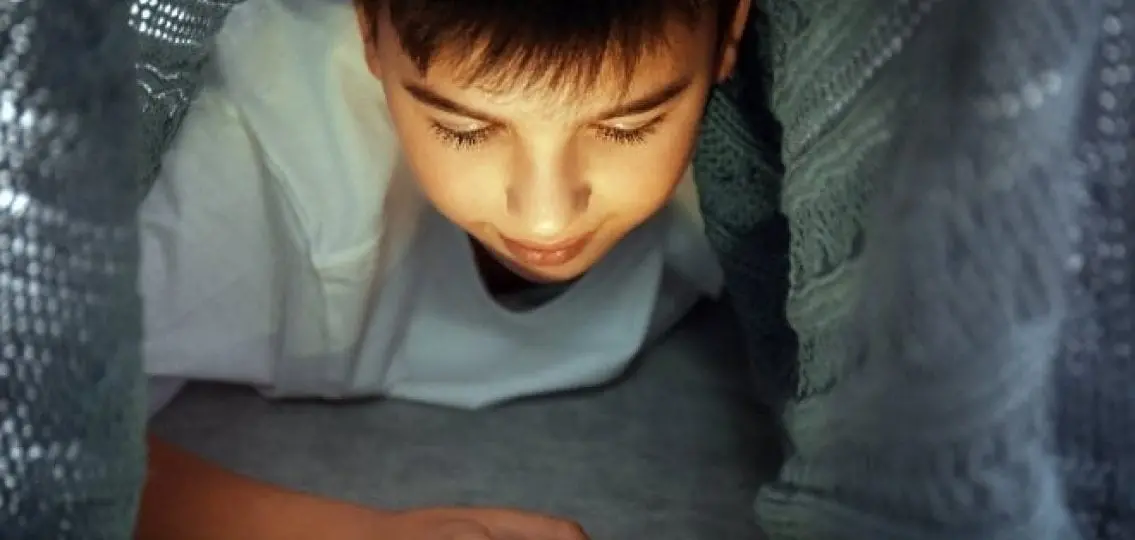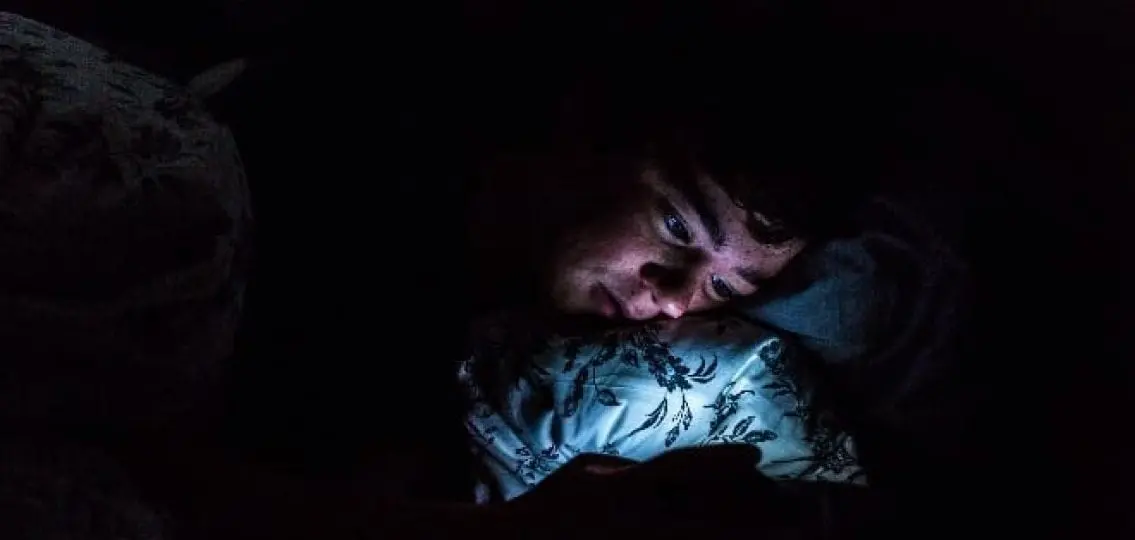Sexting is an activity that both parents and teens have very strong feelings about. And perhaps it’s not surprising that they don’t necessarily see eye to eye about it.

Below, read a parent and two teens discuss their views about sexting. Then, see what our expert has to say about this new technology. Hopefully, their reflections can help understand why teens engage in this activity, understand the consequences, and provide parents with some ideas about how to have a conversation with their teenagers.
Parent 1 | Anonymous
I like to think that I’m a pretty progressive mom, but maybe I’m a bit traditional.
My youngest son is a sophomore in high school. I thought I’d seen it all with his sisters, both of whom have graduated from college. My oldest told me far more about her teenage years than I ever wanted to know, and my middle child told me nothing while challenging every boundary and breaking every rule.
In communicating with my son, I hoped to find a balance somewhere between too much information and no information at all. He’s a great kid: an athlete and a good student. He finds work in the summer, sets goals for himself, and achieves them. He makes plenty of mistakes, but I generally don’t worry about him.
Months ago, he downloaded the pictures from his phone onto my computer. Curious, I looked at the pics and classified 99% as the usual stuff: kids at parties, kids dancing, kids playing sports.
Then I saw it: the picture of a girl in her bra with one breast fully exposed. A little later, I checked his picture file again (which automatically updates whenever he takes or receives new pics on his cell) and found another sext— this time of a completely naked young girl in bed, revealing all but her face.
My son has no idea I’ve discovered this secret window into his world, and now I feel stuck with these sexts. I told my mom friends, and they thought I should call the girl’s mother. But, I can’t identify the faceless.
Instead, I started a conversation with my son, minus a confession on my end. I told him that I’d heard from a few of the moms that girls were doing this. I asked him if he’d ever received any of these pictures. Thankfully, he was honest with me and said some girls had sexted him.
I asked who, but he wouldn’t say. I don’t blame him for not telling, but I worry for these girls. We talked about why girls do this. His reply was that they’re all horny.
I told him I understand that, being a teenage boy, he probably enjoyed looking at these pics. I get it. But then, we talked about the consequences of sending pictures like this. We talked about how once you send a picture, you can’t retrieve it. We talked about how the law considers teenage sexting as a form of child pornography and that to forward or post sexts could have legal consequences that he’d have to confess on college and job applications. It would follow him the rest of his life. I explained that if the school or police saw these on his phone or computer, he’d face these kinds of consequences.
He was horrified. I then asked him whether he’d ever sexted. He burst out laughing and told me, “No Mom, no dirty pics from me.” Whew! Thank goodness!
The next morning, I planned to delete the pictures from my computer, which would have deleted the sexts from his phone and blown my cover. Lucky me, my son had already deleted them.
Young Adult | Brian Kearney
I was 17 when I sent my first sext. Growing up as a gay teenager, I missed out on the typical love connections that most of my peers experienced in high school. Apps and technology made it possible for me to connect with other gay teens that I wouldn’t have met otherwise. I wanted to feel desired, and my first sext made me feel exactly that. It made me feel good about myself. For once, I knew what it was like to feel wanted by someone.
I didn’t experience any negative consequences, but I didn’t continue sexting for long because I didn’t fully know the person I was sexting. He could have been a pedophile. I stopped because I didn’t want to end up like my schoolmates who had nude photographs circulated around school. I never sent photographs of myself because I always had that voice in the back of my head saying, “This isn’t a good idea. You don’t know this person.”
I don’t think sexting drastically changes a teenager’s sexual behaviors; it just makes sexual behaviors noticeable to adults and parents. Sexting can come with problems, especially when it’s done carelessly, like accompanying sexts with a nude photograph. But it’s an acceptable form of discovering one’s sexual identity, as long as it’s done with discretion and care.
Parents and guardians should openly discuss about sexting with their teens, including talking about the pitfalls of sexting. If they’re not careful, nude photographs can be shared with the world and used against them.
Brian Kearney is a senior at Rowan University majoring in Public Relations and Advertising. He is 23 years old and lives in New Jersey.
Teen | Anonymous
Sexuality is all about perception. The common phrase “beauty is in the eye of the beholder” attests to this. One does not have to be sexy, rather just be perceived as sexy.
Technology simplifies creating perception. More specifically, a cell phone is an invaluable tool to manipulate reality. Teens don’t have to be themselves on a cell phone; they can be whomever they choose. Oftentimes, teens take this opportunity to promote themselves in the most sexually appealing way. This might be one reason for my entrance into sexting.
I started sexting in middle school in order to bend reality, and by the time I reached high school, I’d reinvented my image. In my tweens, I was known as the nice girl with insane amounts of energy and an annoying laugh. By the start of ninth grade, I became the bad girl who could get any guy she wanted.
Through sexting, I became the dangerous, rebellious, exciting girl that I believed boys wanted. And yet, my real life never changed. I didn’t actually have sex, I didn’t go to wild parties, and I wasn’t with a different guy every night. Through lewdly flirtatious texts and nude pictures, I contorted my image for boys to find me more attractive. Yet, this was only an image—a projection from my cell phone. And, it was so easy; I could be the person I wanted to be and the person boys wanted me to be at the exact same time.
Sexting was my charade to draw boys in. Would I ever have been brave enough to wink at a boy and drop a hint about the color of my underwear in person? Assuredly not. But, my phone gave me enough separation to feel assertive and risky. At the same time, it still felt so private. I was pulled into the illusion that sexting is between two people and two people only. Even now, when I know just how public sexting is, it’s still tempting to succumb to this naïve belief of false privacy.
The appeal of sexting lies in the hiding behind a cell phone screen and privacy. It seemingly builds confidence and ensures confidentiality. It highlights attributes while hiding faults. It’s dirty and thrilling. And, for a time, they’ll hide the truth that it’s also deceitful and threatening—not clandestine, not positive, and not ethical. And yet, it doesn’t feel wrong. After all, sexting only causes someone to be perceived as a bad person. Right?
Professional | Susannah Stern, Ph.D.
Sex and social media. It’s hard to think of two topics about which parents feel more anxious. On the one hand, we know that sexual curiosity is a normal, healthy part of growing up. On the other hand, we worry about the timing and consequences of teens’ sexual activities. And while we appreciate how social media provides tools for teens to socialize and express themselves, we fret about how frequently teenagers engage with social media and what they might encounter or communicate in digital spaces.
Sexting—sending sexual messages or images via text message—marks a unique intersection of sexual and social media practices. Dramatic accounts of sexting shattering the lives of teenagers litter the popular media, as do stories of teen sexters convicted as sexual offenders. Clearly, it would seem, teen sexting is a problem.
Ironically, as a researcher who has studied teens’ digital expression for 15 years, I remain ambivalent. Yes, sexting can have negative repercussions, but most do not arise from sexting itself. Sexting doesn’t ruin a teenager’s reputation; the recipient’s decision to share it does. Sexting doesn’t instigate physical sexual activity; rather, it co-occurs with other sexual behaviors.
It’s not that sexting makes a teen sexual; it’s that sexual teens are more likely to sext. The technology makes it more visible, but, is it criminal? Teens who send sexual images of themselves are not child pornographers, but their criminal convictions reflect a sloppy penal system that does not yet effectively distinguish between victims, offenders, and communicators.
Focusing only on the negative repercussions of teen sexting obstructs our understanding of why teens sext in the first place. Teen sexting can occur in at least two contexts: within an established relationship and outside of a relationship. The former gets little attention, but in this case, sexting isn’t all negative. It provides a unique way of flirting and being sexual without many of the social and physical risks of in-person interaction. Sexting can establish trust, build depth, and set the stage for more open dialogue about sex.
Teenagers who sext outside of established relationships are hoping to paint themselves as attractive or desirable partners, trying to develop romantic relationships, and experimenting with self-presentation styles. They’re doing this to garner validation from others. They want to know that someone has seen them as a sexual, flirtatious or attractive person.
These aspirations are not new, and they are not abnormal. Young people are using technology for virtually every task of adolescence, so it makes sense that sexual identity exploration is included as well.
Talk with your kids about sexting—as a sexual practice, not as a shameful or foolish behavior. Listen to them as they describe why they think others sext or why they might be compelled to sext. This will help you better understand how they see sex, sexual expression, and courtship in the digital age.
Discuss the risks of sexting in these conversations. Just as we caution our children about sex, we should caution them about sexting. A sent sext message can’t be retrieved, can easily be shared with others, and may result in criminal punishment. Also, discuss alternatives to sexting.

Parents’ ambivalence about teen sexuality and social media is unlikely to abate, but through respectful conversations with our teens, we can navigate the uncertainties together.




